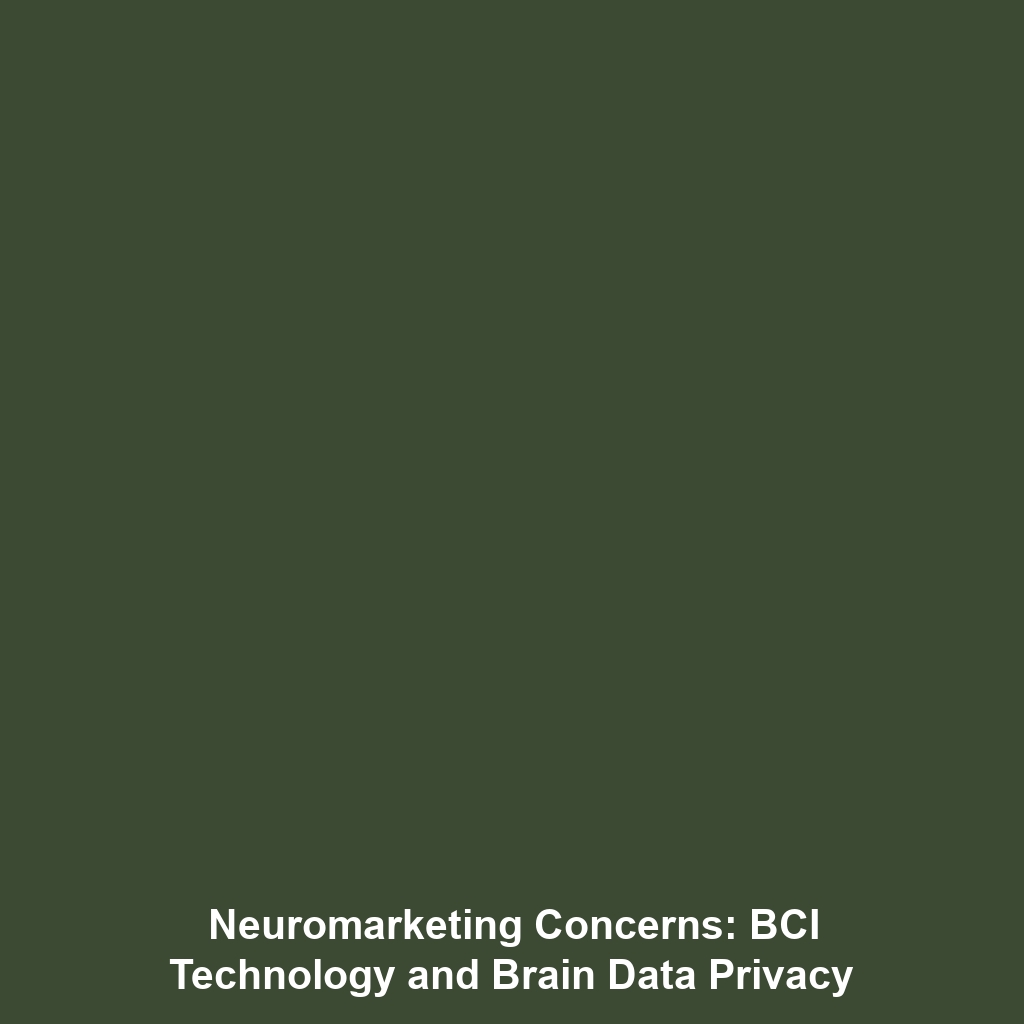Neuromarketing: The Intersection of Brain-Computer Interfaces and Consumer Data
Neuromarketing, an emerging field at the intersection of neuroscience and marketing, harnesses the power of Brain-Computer Interfaces (BCI) to analyze consumers’ brain activity. As companies gain the ability to access brain data for targeted advertising, ethical concerns arise about privacy and the implications of manipulating consumer behavior. This article delves into the significance of neuromarketing within the broader context of BCI technology, highlighting its developments and challenges while raising awareness about the potential misuse of such capabilities.
Key Concepts of Neuromarketing
Understanding the fundamentals of neuromarketing is essential for analyzing its applications and implications within Brain-Computer Interfaces. Here are the major concepts:
- Brain-Computer Interfaces (BCI): These systems allow direct communication between the brain and external devices, fundamentally altering how consumers interact with technology.
- Consumer Neuroscience: This field studies how brain responses to marketing stimuli can inform advertising strategies and product development.
- Targeted Advertising: Neuromarketing seeks to enhance the effectiveness of ads by using brain data to tailor messages that resonate with potential customers.
Applications and Real-World Uses
The applications of neuromarketing within Brain-Computer Interfaces are significant and multifaceted:
- Product Testing: Companies utilize BCIs to assess brain reactions to new products before launch, thereby refining marketing strategies.
- Ad Performance Measurement: Firms analyze neural responses to advertisements in real-time, allowing for immediate adjustments in marketing campaigns.
- Brand Affinity: BCIs help brands understand how consumers emotionally connect with their products, guiding emotional advertising efforts.
Current Challenges in Neuromarketing
Despite its exciting possibilities, several challenges limit the study and application of neuromarketing:
- Ethical Concerns: The use of sensitive brain data raises significant ethical issues regarding consumer privacy and consent.
- Data Interpretation: The complexities of translating brain signals into actionable marketing insights can lead to misinterpretation of consumer intentions.
- Technological Limitations: Current BCI technology often requires sophisticated equipment that is not widely accessible or practical for everyday use in marketing.
Future Research and Innovations
The future of neuromarketing and its relationship with Brain-Computer Interfaces is promising, with several innovations on the horizon:
- Advancements in BCI Technology: Newer, less invasive techniques are being researched, potentially making brain data collection more ethical and widespread.
- Machine Learning Integration: The fusion of machine learning with BCI data promises improved prediction of consumer behavior and preferences.
- Enhanced Consumer Engagement: Future breakthrough technologies could create more immersive advertising experiences that resonate at a deeper emotional level.
Conclusion
Neuromarketing exemplifies the transformative potential of Brain-Computer Interfaces, yet it also brings important ethical considerations to the forefront. As companies explore the use of brain data for targeted advertising, vigilance in protecting consumer rights is essential. Moving forward, researchers must strive to balance innovation with ethical standards. For continued exploration of related topics, check out our articles on ethical considerations in BCI and latest advancements in BCI technology.
